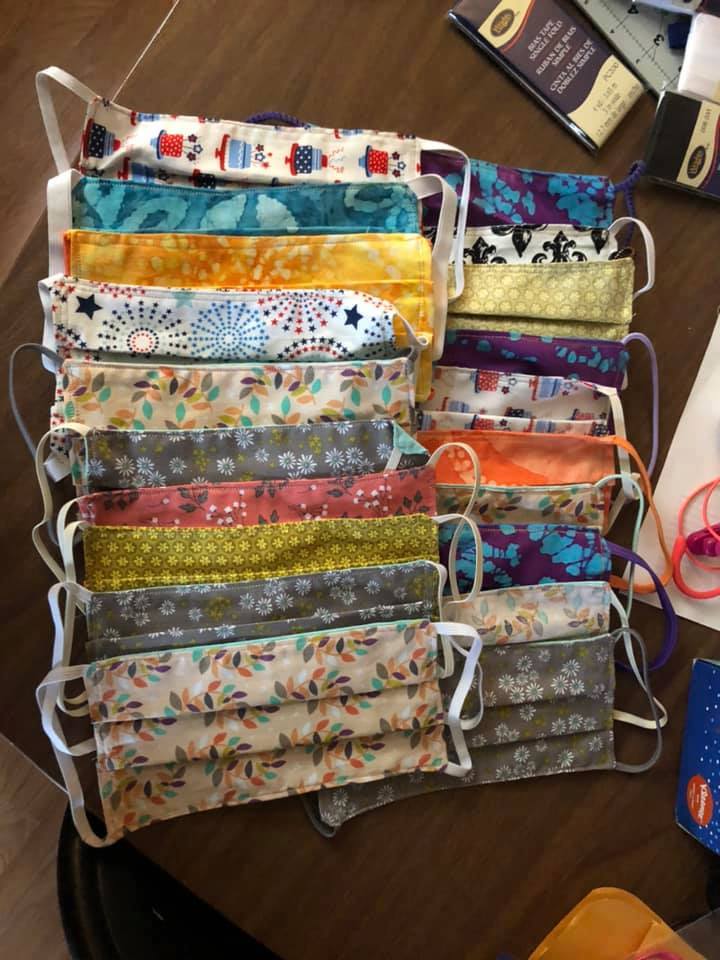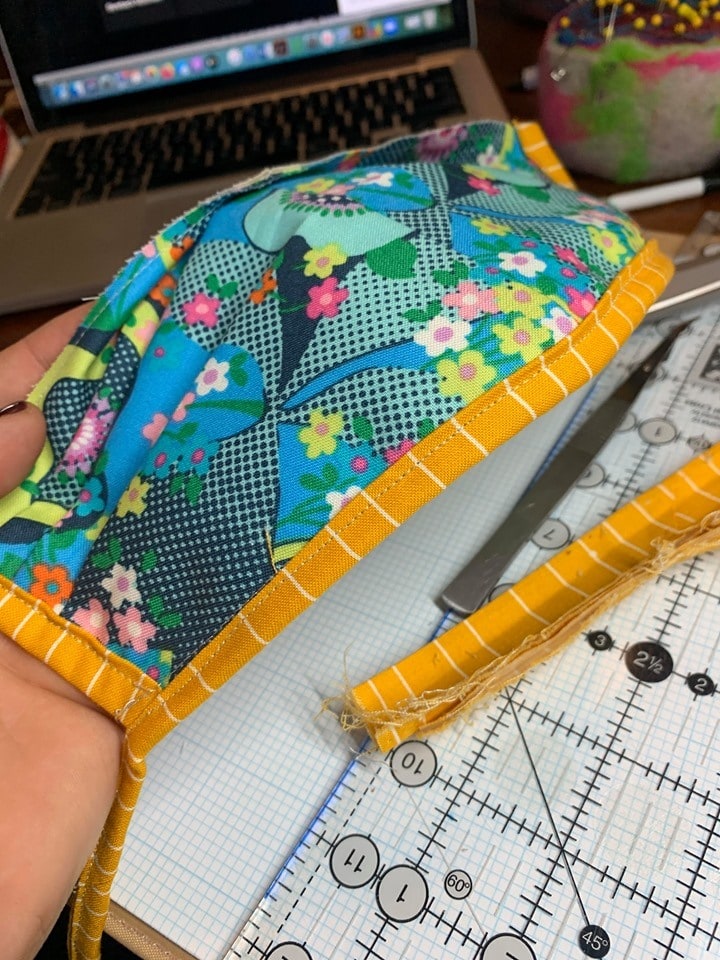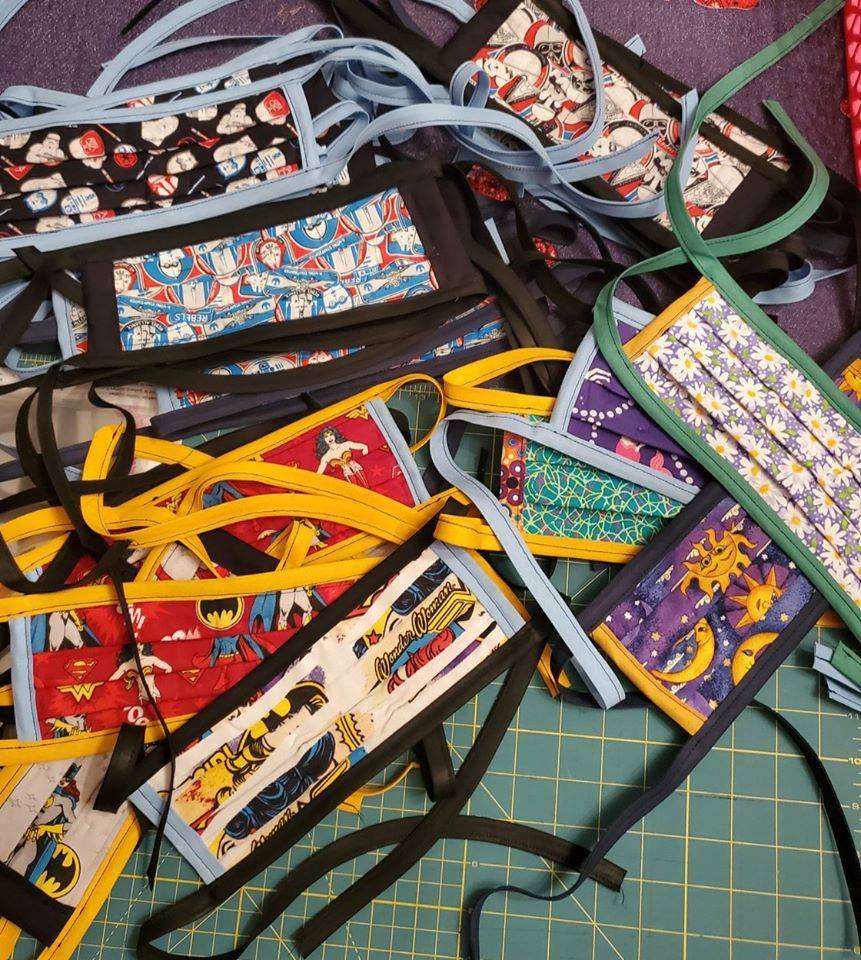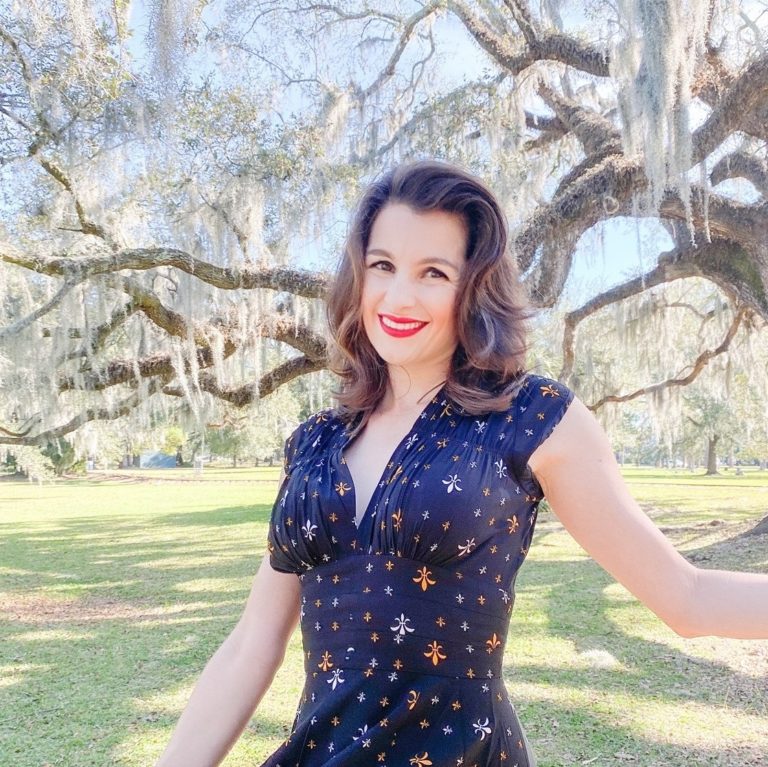In a time of crisis, people tend to come together to fulfill a need. They say charity begins at home and local crafters have taken to their sewing machines to sew handmade cloth masks for people hoping to add an extra barrier of protection from COVID-19, as well as those on the frontlines of the pandemic.
Taxing on Medical Supplies
The Los Angeles Times reports that wearing a mask could prevent people from becoming infected with COVID-19, or spreading it to others, if the masks are used in addition to hand washing, social distancing of six-feet and other protective measures. On Apr. 3, the Centers for Disease Control and Prevention (CDC) officially recommended that Americans wear cloth facial coverings in public.
The COVID-19 crisis has taxed medical supplies and has left doctors and nurses in need of personal protective equipment (PPE) — masks, face shields, gowns and gloves. Doctors and nurses need specialized N95 masks with respirators, which are tight-fitting masks and the only mask that can protect the wearer from exposure to airborne particles. Still, across the country, makers are doing what they can to ensure medical personnel and the general public are somewhat protected from the COVID-19 threat. Handmade masks are to be coupled with proper PPE, when used by medical professionals.

Sewing The Gap Locally
Now, local organizations are working to make masks for those who want them.
One local group, Stitchers Without Borders, is making masks for those interacting with the public, from material approved by the Department of Health and Hospitals, who also provided the group with an approved mask pattern. The group recently accepted a donation of materials from Walmart, after meeting with members of the New Orleans City Council and other state officials.
Victoria Coy, one of the group’s founders, said that government help made the donation possible, but materials have been limited.
“We worked with Councilwoman [Cyndi] Nguyen to secure a donation of material from Walmart and to get DHH to approve 100% cotton (“Quilter’s Cotton”) for use in PPE,” Coy explained. “Even with that we have only been able to outfit a dozen or so stitchers with material. The desire to help has been so amazing and quickly overwhelmed our resources, but we’re not deterred. Stitchers are now digging into their own stockpiles or even buying material themselves to keep going. It’s really touching and amazing!”
Coy said that she understands that some medical facilities aren’t accepting handmade masks for use by medical personnel, but she has found the response to the masks positive. Rather giving the masks to doctors or nurses, many facilities are choosing to hand them off to patients in need.
“We realize that empirical data on the efficacy of cotton masks is mixed,” she said. “For that reason, many of the hospitals we’re working with are requesting these masks for patients who are being sent home after treatment and do not have PPE, rather than for use in clinical environments. How they use the materials is up to them. Once we fill the requests from the 4-5 local hospitals we’ve heard from, we’ll turn our attention to citizen use.”
The group’s moderator, Paul Tassin, said the group is reaching out to facilities across the Northshore and Southshore and will supply masks to anyone who wants them.

“We’re working on requests from East Jefferson General Hospital and two facilities on the Northshore — North Oaks and Summerfield Senior Living. We’re trying to get in touch with officials from other facilities to let them know we’re out here ready to sew.”
Getting The Masks In The Right Hands
Another goal of the group is getting the masks into the hands of those who need them in a safe way. With social distancing the new reality, the group works with the facilities to deliver as many masks as possible during consolidated trips.
“Delivery is a big thing for us,” Tassin explained. “Lots of facilities say they really don’t want [random people] walking up to their door unannounced with armloads of masks. We get the facilities to agree in advance to accept the masks and consolidate delivery into a single trip and try to send as few people as possible out there.”
Founded by Cathy Dickey, Facebook group Face Mask Shortage (New Orleans local area) Sewing Initiative, consists of crafters from Mardi Gras Krewes. With over 70 volunteers pre-washing and cutting fabric, sewing, and doing drop-offs, they have distributed over 1,400 masks to date. The group has received requests for masks from doctors, nurses, postal service workers, grocery store workers, delivery drivers, funeral homes, homeless shelters, police, firemen, EMT’s and many more.
Moderator Jeannine Ford said that the group has accepted fabric donations from Walmart, through local organization RicRack, and designer Kendra Scott donated 1,000 bandanas to be converted into masks. The Krewe of the Rolling Elvi also donated ponchos to medical workers through the group.
Ford explained that the Face Mask Shortage group was made so creators could come together and offer hope during this difficult time.
“The Facebook page has become a means of sharing ideas, motivation, thank you posts and general solidarity from people all over the country in this trying time,” she said. “We know that the masks are merely preventatives, but right now anything helps. At times it has been overwhelming, but the ‘can-do’ attitude of everyone involved keeps us motivated. We are at a critical time fighting this fight and no one is wavering.”
‘Coughture Casual Collection’
When local performer and designer John Joseph Delgadillo saw the need for masks, he knew that he could put his sewing skills to work. Pulling fabric from his own supply, the orders for masks started pouring in and Delgadillo began making masks for everyone- from the general public to medical workers. To date, Delgadillo has sold 350 masks and over 300 more have been ordered.
Delgadillo makes his masks to be fashionable, as well as functional, and has dubbed his effort “Coughture Casual Collection.”
“The materials I am using are cotton prints, cotton lining, and there is a waterproof mesh layer in the middle for added protection,” he said. “They are open at the side seams, so people can add their own PPE such as tissue, toilet paper, paper towels, coffee filter or thin maxi pads cut to size. My mask features bendable nose pieces and ear straps and are 100% washable. All edges are finished with a serger, so they last a long time.”
Delgadillo said the reaction to his masks has been overwhelming and he hopes to turn his mask making into a full-time business and expand into making button head bands, nurses hair caps and more for medical workers and others in need.
Mask Dat
Rhonda Findley, owner of boutique Funrock’n & Pop City, started Mask Dat so that she could get locals back to work making masks for the public. The masks are made of cotton from African Wax cloth and are designed in collaboration with local sewing manufacturer Tam Huyhn and her team. Mask Dat is selling the masks in pairs, so that the buyer can donate one of them to someone in need. With every purchase, a third mask will be donated to first responders through a partnership with a local non-profit entity and the City of New Orleans.
Wearing a cloth mask is an easy way to help prevent the spread of Covid-19 and handmade masks are quickly becoming a “must-have” accessory. Be sure to get yours, but keep washing those hands (and masks, after each use), keep a social distance and stay at home whenever possible.







